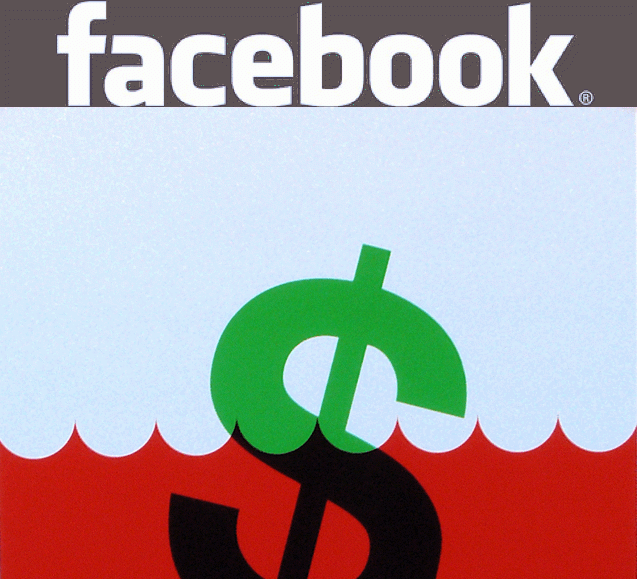Last chance to save on Digiday Publishing Summit passes is February 9

Since its IPO, Facebook has been in a world of pain. The AdContrarian predicted as much on the day of the IPO and this week explained the house of cards that not only the IPO hysteria was based on, but also Facebook’s revenue model. Something else to pay attention to: the cascade effect of the dismal Facebook IPO on other social networks and tech companies, as its overvaluation could have tempered expectations from sites like Twitter or Kayak, who may think to go public. It’s quite possible that Facebook single handedly — and simultaneously — popped and prevented a bubble. Maybe.
The amazing thing about the Facebook IPO hysteria is that the whole foundation was built on — as my dear mother used to say — shit and glue. Facebook’s revenue model is dependent on selling advertising space, and there is compelling evidence that paid advertising on Facebook has thus far been uniquely ineffective. But we live in an age in which the marketing and advertising industries trust unreliable and foolhardy pundits and experts more than we trust facts or the evidence of our own eyes… Could it be that the Facebook face plant will serve the purpose of injecting some reality into the fantasy world of advertising and marketing? Not a freakin’ chance.
Click to read the article at the AdContrarian and follow him on Twitter @adcontrarian.
More in Media

In Graphic Detail: The scale of the challenge facing publishers, politicians eager to damage Google’s adland dominance
Last year was a blowout ad revenue year for Google, despite challenges from several quarters.

Why Walmart is basically a tech company now
The retail giant joined the Nasdaq exchange, also home to technology companies like Amazon, in December.

The Athletic invests in live blogs, video to insulate sports coverage from AI scraping
As the Super Bowl and Winter Olympics collide, The Athletic is leaning into live blogs and video to keeps fans locked in, and AI bots at bay.





